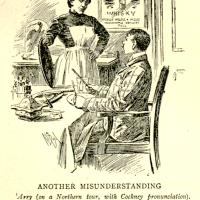 This week, I have decided to share my thoughts about Frederick Buechner‘s recent book, The Remarkable Ordinary: How to Stop, Look, and Listen to Life (2017), and to share some highlights from the text. Drawing materials from his memoirs in a storied approach to his life, Buechner wants to draw out how the transformational moments are not always remarkable miracles, but the attention to the details, the anticipation of the predictable, and astonished reflection upon the ordinary.
This week, I have decided to share my thoughts about Frederick Buechner‘s recent book, The Remarkable Ordinary: How to Stop, Look, and Listen to Life (2017), and to share some highlights from the text. Drawing materials from his memoirs in a storied approach to his life, Buechner wants to draw out how the transformational moments are not always remarkable miracles, but the attention to the details, the anticipation of the predictable, and astonished reflection upon the ordinary.
One of these great spots in Buechner’s book is another piece that originated as a lecture and became a famous essay. This is J.R.R. Tolkien’s brilliant piece, “On Fairy-stories,” first given in 1939 as a talk, and then drawn into the C.S. Lewis edited volume, Essays Presented to Charles Williams (1947), as well as some other collections like Tree and Leaf (1964). I have already published on Tolkien’s poem, “Mythopoeia,” but readers may not know how theory and ideas of “On Fairy-stories” shoots through my academic work.
 In his closing chapter, “The Presence of Peace,” Buechner turns to the subject of “joy.” Given how important C.S. Lewis was to Buechner (see more on Friday), and how central joy is to Lewis’ spirituality (see here), prompting an autobiography called Surprised by Joy, we can imagine how he would turn to Lewis to discuss how one must listen for joy in everyday life. Instead, and with a great lyrical lift in the text, he turns to Tolkien’s “On Fairy-stories.” I will simply leave you with Buechner’s selection of Tolkien’s comments on joy:
In his closing chapter, “The Presence of Peace,” Buechner turns to the subject of “joy.” Given how important C.S. Lewis was to Buechner (see more on Friday), and how central joy is to Lewis’ spirituality (see here), prompting an autobiography called Surprised by Joy, we can imagine how he would turn to Lewis to discuss how one must listen for joy in everyday life. Instead, and with a great lyrical lift in the text, he turns to Tolkien’s “On Fairy-stories.” I will simply leave you with Buechner’s selection of Tolkien’s comments on joy:
And, of course, one of the things we must listen for is joy. It’s hard to talk about joy for the almost superstitious reason that you might take the bloom off it, you’ll quit, you’ll threaten it, you fear it will come to an end when the demons come and gobble it up. But almost in spite of ourselves we get glimpses of joy, and maybe glimpses is all we can ever have of joy. There’s a wonderful phrase of Tolkien’s in an essay he wrote on fairy tales where he speaks of “Joy beyond the walls of the world, poignant as grief,” which you glimpse in fairy tales during what he calls the “sudden joyous ‘turn’”—where the frog turns out to be a prince, where the straw is spun into the gold, or the funny little man turns out to be the king, or whatever it is. The sudden glimpse of a joy beyond the walls of the world. We do get glimpses of it, I think, if we have our eyes opened for that possibility, like when I suddenly realized that I was at the manger, or being at SeaWorld where I saw the peaceable kingdom and Eden and tears filled my eyes and also the eyes of my wife and daughter. These glimpses we have of joy—that’s part of the news of the day and a very easy part to somehow let slip by.






















Pingback: “Joy Beyond the Walls of the World, Poignant as Grief,” with J.R.R. Tolkien and Frederick Buechner — A Pilgrim in Narnia – Strider's Table
Pingback: Susanna Clarke’s Piranesi, Owen Barfield, Language, Childlike Faith, Joy, and the Inklings | A Pilgrim in Narnia
Pingback: Have an extra $30,000/£22,000? 1st Edition of That Hideous Strength signed by C.S. Lewis for George Orwell–With Some Notes on Collecting C.S. Lewis | A Pilgrim in Narnia
Pingback: “The Poetry of Lucy Maud Montgomery” and the Critical Virtue and Vice of Editors | A Pilgrim in Narnia
Pingback: Great and Little Men: J.R.R. Tolkien’s Letter about C.S. Lewis and T.S. Eliot | A Pilgrim in Narnia
Pingback: Blogging the Hugos 2021 (Series Launch) | A Pilgrim in Narnia
Pingback: A Brace of Tolkien Posts for his 130th Birthday (#TolkienBirthdayToast) | A Pilgrim in Narnia
Pingback: An Author Who Has Changed My Life, Frederick Buechner, Has Died (1926-2022) | A Pilgrim in Narnia
Pingback: A Brace of Tolkien Posts for his 131st Birthday (#TolkienBirthdayToast) | A Pilgrim in Narnia
Pingback: A Brace of Tolkien Posts for his 132nd Birthday (#TolkienBirthdayToast) | A Pilgrim in Narnia